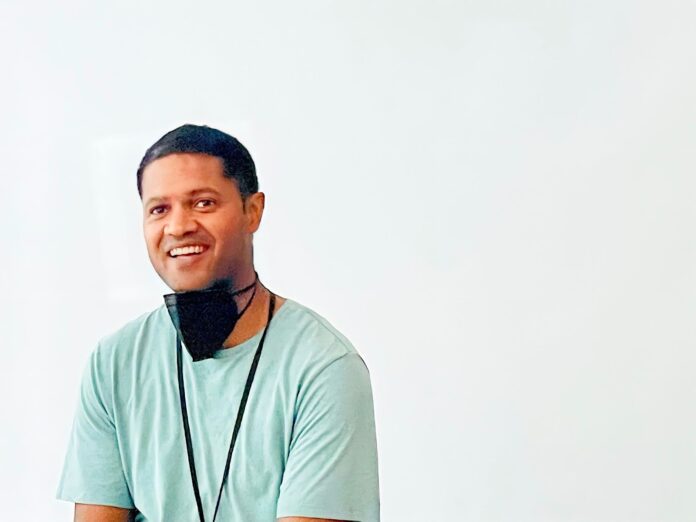
Brian Wasson, an English teacher at Chapel Hill High School, is set to release his first published novel in the fall of 2023.
The novel, Seven Minutes in Candyland, follows a sophomore high school student and Candygram salesman as he becomes an unofficial school therapist following an inspiring encounter with his crush. HarperCollins’ Quill Tree imprint will publish the book.
Wasson’s main goal was altering attitudes of self-care through a fictional yet relatable story.
“I want any reader to come away with a new perception of the importance of mental health–that you take the time to enjoy little things, and even if you can’t find joy, talk to somebody and try to access that help that a lot of us can’t admit that we need,” he said.
While the novel deals with mental health, the method in which the issue is conveyed is creative and plays into the realistic fiction genre. Following a mildly similar plot as the Netflix series Sex Education, the dry-humored yet witty novel explores a seemingly unusual storyline.
“I usually start with a ‘What if?’ question,” Wasson said. “What if this had happened? How would these people be affected by this thing? How would they react and what would ensue? That’s usually how I come up with ideas.”
Wasson also believes that reading and exploring literature sparks his creativity and allows him to examine varying writing styles.
“With reading, you get a whole universe of different ways to write well, and you’re also inevitably going to come across stuff that you’re not really thrilled with, so you’re going to find your style,” Wasson said. “We’re inherently not going to mimic writing that you think is bad, right? You learn what really good writing is to you.”
Wasson promotes exploring literature to his students, hoping to inspire them to read and examine various stylistic aspects of writing.
“He’s really emphasized reading and looking at a bunch of different types. I feel like it’s definitely helped me as a writer,” junior Amber Jarecki-Meyers, one of Wasson’s students, said.
Wasson found the time to write his novel over the pandemic when schooling was virtual and he had more time to to focus on his writing at home.
“I don’t even think about writing until my toddlers are in bed. I try to use that quiet time to focus, probably for an hour or so,” Wasson said. “I write around three chapters; then I’ll go over what I’ve written and make an outline of what I think the story is going to look like, and then continue with the rest of it.”
Wasson’s personal and professional life have also influenced his writing. He states that being exposed to children and teenagers has given him insight, especially when writing stories like Seven Minutes in Candyland, where the main characters are all younger.
“I guess the longer I’ve had kids, I’ve grown a lot more compassionate about the problems that kids and teenagers face,” Wasson said. “They’re going to eventually be your age and coming with your baggage and difficulties. There’s a lot more compassion in my writing of teenage life.”
Though he said, as a teacher, he doesn’t base characters or tropes off of students whom he teaches, Wasson’s role as a teacher can still influence his way of portraying adolescents.
“Obviously, as a teacher, you’re going to pick up on students; what they say, how they conduct themselves,” Wasson said. “I have five or six students that come to my lunch room, and I’m just doing my own thing, but also picking up bits of conversation. I would never tail their conversations, but you can’t help but hear that stuff. Students will actually let their guard down around you.”
Wasson is scheduled to release another novel with HarperCollins in 2024. The book’s plot will be entirely differently from Seven Minutes in Candyland, as Wasson does not plan on making a direct sequel. However, he would consider writing various stories within the world he has created, similar to Becky Albertalli’s work with the universe of Simon vs. the Homo Sapiens Agenda.
Following various publishing rejections in his career, he has also built up a positive mindset when reflecting upon his past obstacles.
“Learn not to take it personally,” Wasson said. “Learn that each step or each failure is part of a bigger process that can lead to other successes down the road.”
In teaching his students various literary techniques and analytics, Wasson also aims to inspire new writers not to worry when writing and let the creativity flow naturally.
“Don’t be afraid,” Wasson said. “Don’t worry too much. Get your feelings to convey onto the page. A quick way of getting frustrated is to simultaneously write and try to revise and perfect what you write. Try not to do that.”











